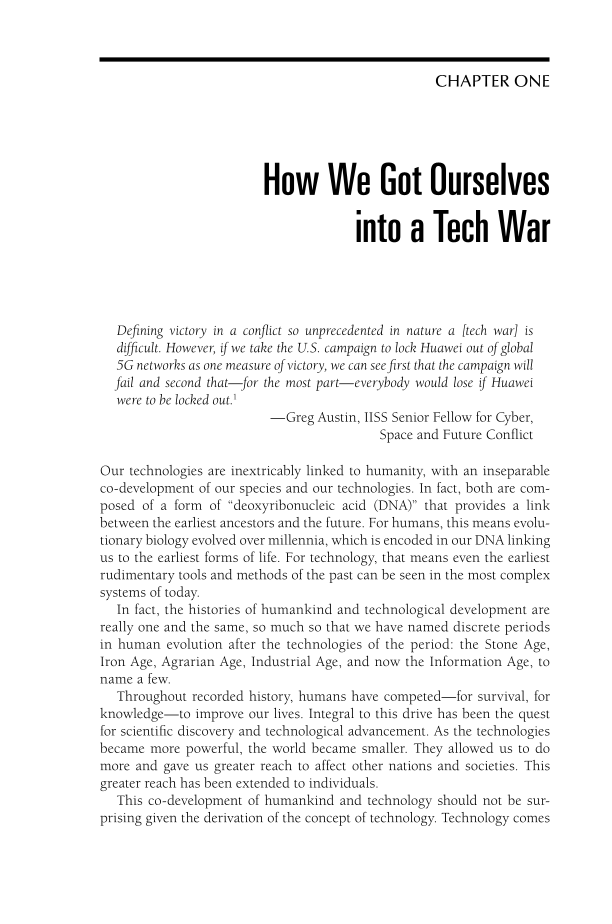CHAPTER ONE How We Got Ourselves into a Tech War Defi ning victory in a confl ict so unprecedented in nature a [tech war] is diffi cult. However, if we take the U.S. campaign to lock Huawei out of global 5G networks as one measure of victory, we can see fi rst that the campaign will fail and second that—for the most part—everybody would lose if Huawei were to be locked out. 1 —Greg Austin, IISS Senior Fellow for Cyber, Space and Future Confl ict Our technologies are inextricably linked to humanity, with an inseparable co-development of our species and our technologies. In fact, both are com- posed of a form of “deoxyribonucleic acid (DNA)” that provides a link between the earliest ancestors and the future. For humans, this means evolu- tionary biology evolved over millennia, which is encoded in our DNA linking us to the earliest forms of life. For technology, that means even the earliest rudimentary tools and methods of the past can be seen in the most complex systems of today. In fact, the histories of humankind and technological development are really one and the same, so much so that we have named discrete periods in human evolution after the technologies of the period: the Stone Age, Iron Age, Agrarian Age, Industrial Age, and now the Information Age, to name a few. Throughout recorded history, humans have competed—for survival, for knowledge—to improve our lives. Integral to this drive has been the quest for scientifi c discovery and technological advancement. As the technologies became more powerful, the world became smaller. They allowed us to do more and gave us greater reach to affect other nations and societies. This greater reach has been extended to individuals. This co-development of humankind and technology should not be sur- prising given the derivation of the concept of technology. Technology comes
Document Details My Account Print multiple pages
Print
You have printed 0 times in the last 24 hours.
Your print count will reset on at .
You may print 0 more time(s) before then.
You may print a maximum of 0 pages at a time.










































































































































































































































































































